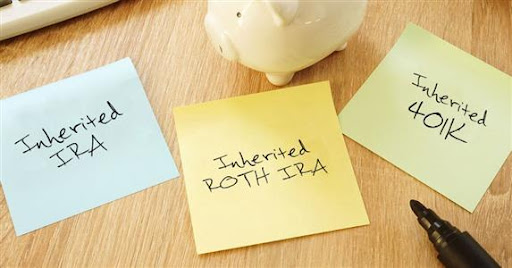Inherited 401(k)s and IRAs: A General Guide
Presented by Marc Aarons
Recently, I’ve had several clients reach out, unsure of what steps they need to take with a recently inherited 401(k) or IRA. It can be a difficult process to navigate, especially since a retirement account is usually inherited after losing someone special.
With that in mind, I thought I’d send a few general steps your way in case you or someone in your network find yourself in this position. I’m also always a phone call away, should you need additional guidance on this or other financial matters.
Step 1: Inform Yourself
When inheriting a retirement account, the first step is to take the time to fully understand what you can and cannot do. Various rules apply depending on your relationship with the deceased—and some are relatively new.
The 2019 SECURE Act limited how long beneficiaries can hold on to inherited accounts. Previously, beneficiaries could take distributions from inherited IRAs and inherited 401(k) plans across their entire lifetime, as long as they were fulfilling the required minimum distribution each year. Now, it’s generally a requirement that the balance in the inherited account be withdrawn fully over ten years.
There are some exceptions, including for spouses of the deceased. Other exemptions include those who are minors, chronically ill or disabled, or who are 10 years (or less) younger than the original owner.
Step 2: Consider Your Options
If you are the spouse, you will have the most leeway:
- You can roll the money into your own IRA. Once completed, you would follow the new required minimum distribution (RMD) rules. It’s important to note that if you reach the age of 72 in 2023, the required date for your first RMD is now later. If you are the surviving spouse and do not have an immediate need for cash, this can be a wise choice, as the money could continue to grow in the account.
- You can name yourself as the owner of the inherited IRA, deferring distributions until your first RMD.
- You can treat yourself as the beneficiary, withdrawing funds within the 10-year timeframe.
There are various tax and RMD implications for each choice, which I am happy to discuss with you in more detail.
If you are a minor child of the deceased:
- Annual required minimum distributions must be taken until the minor reaches the age of majority according to the state of residence—usually 18 years old.
- The 10-year depletion rule then takes effect, meaning all funds must be withdrawn by the time the beneficiary is 28 years old (if 18 is the age of majority).
Beneficiaries that are chronically ill or disabled can qualify for an exemption from the 10-year depletion rule, which would allow them to take distributions over their entire lifetime.
If you are a non-spousal beneficiary:
You will need to satisfy the 10-year depletion rule. The bottom line: the inherited funds must be withdrawn fully over the 10-year period.
- This process involves opening an inherited IRA and transferring the funds from the inherited Traditional IRA or 401(k) into it. The exact process differs if the account you inherited is a Roth IRA.
- Funds can be withdrawn unevenly over different years in this situation—it does not have to be an identical amount over a set schedule.
- Of course, there will be tax implications when withdrawing from a traditional IRA or 401(k). These distributions can require some careful planning, depending on your tax bracket and income outlook. Taking distributions from Roth IRAs, on the other hand, will not come with tax implications.
Step 3: Talk Your Options Over With a Qualified Professional
The fact is that we have barely scratched the surface here when it comes to the plethora of options and choices that beneficiaries need to consider.
While this gives you a starting point, such decisions are best made in consultation with a financial planner, particularly when grieving the loss of a loved one, family member, or friend.
If you find yourself in this position or are navigating other difficult financial situations, please know that I am always here as a resource. Give me a call or send an email my way whenever I can be of assistance.
Marc Aarons may be reached at 714-887-8000 or marc@ocmoneymanagers.com
www.ocmoneymanagers.com
This communication is from Money Managers, Inc.; a Securities and Exchange Commission registered investment advisor. Information presented is for educational purposes only and does not intend to make an offer or solicitation for the sale or purchase of any securities, and past performance is not indicative of future results. Investments involve risk and are not guaranteed. Be sure to first consult with a qualified financial adviser and/or tax professional before implementing any strategy discussed here.

Comments are closed